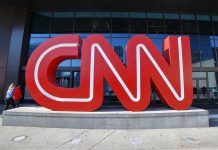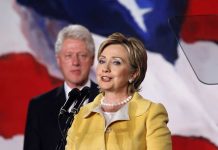
When a US president threatens a billion-dollar lawsuit against the BBC, the world’s eyes flicker between freedom of the press and the raw force of political power—how far can reputation management go when the stakes are global headlines and international law?
Story Snapshot
- Donald Trump has publicly demanded an apology from the BBC, threatening a $1 billion lawsuit over alleged defamation.
- The legal and editorial showdown spotlights stark differences between US and UK defamation laws and media standards.
- The BBC’s response and Trump’s next move could shape precedent for how powerful figures confront global media coverage.
- This clash tests the limits of media accountability and political influence in an era of cross-border news and litigation.
Trump Versus the BBC: The Billion-Dollar Flashpoint
Donald Trump, never one to shrink from the spotlight or a fight, now targets the BBC with a demand for a formal apology and a threat: pay up $1 billion in damages or face a legal war. The dispute ignited after the BBC aired coverage that Trump claims crossed the line from tough journalism into outright defamation. When a media giant like the BBC locks horns with a political titan who built his brand on battling the “fake news,” the result isn’t just a headline—it’s an earthquake felt from Washington to Westminster.
The BBC’s editorial board and Trump’s legal team each huddle in their respective corners, preparing for a confrontation that will play out as much in the court of public opinion as it might in any legal venue. With Trump’s history of threatening, but rarely following through on, media lawsuits, the billion-dollar figure is both headline fodder and a shot across the bow—a tactic that energizes supporters and rattles newsrooms, even if the odds of success remain long.
The Legal Maze: Defamation Across the Atlantic
Trump’s threat spotlights a crucial point: what counts as defamation in the US doesn’t always meet the same standard in the UK, where the BBC operates. American law, shaped by the First Amendment, requires public figures like Trump to prove “actual malice”—that a broadcaster knowingly lied or showed reckless disregard for the truth. The UK, meanwhile, has historically been more favorable to plaintiffs, though recent reforms have tightened the rules against so-called “libel tourism.” For a $1 billion claim to stick, Trump’s team would need to thread a legal needle across two very different systems, each with its own guardrails for speech and accountability.
The BBC, as a publicly funded institution, holds itself to strict editorial guidelines. Its global reach means any misstep reverberates instantly, yet the organization’s core defense is its commitment to journalistic integrity: it investigates, reports, and, when necessary, corrects. But even ironclad editorial standards can buckle under the weight of political pressure—especially when the accuser wields the megaphone of a president.
Why This Clash Matters to the World
This isn’t just about one aggrieved politician and one embattled broadcaster. The Trump-BBC standoff sets the stage for a much larger debate over media freedom, accountability, and the reach of powerful individuals determined to shape—or silence—narratives they dislike. If Trump presses forward, he’ll test the limits of international law and the willingness of courts to entertain transatlantic defamation claims. Meanwhile, the BBC must weigh its response carefully: any hint of capitulation could chill its future coverage, while a defiant stance risks escalating the feud and inviting more lawsuits from political figures worldwide.
For journalists and legal experts, this case is a high-wire act. On one side, media law specialists warn that even the threat of massive litigation can have a “chilling effect,” pushing newsrooms to self-censor. On the other, advocates for public figures argue that unchecked media power can inflict genuine harm. The outcome will influence not just the BBC and Trump, but media organizations everywhere, as they navigate the minefield of global reporting in an age of instant, borderless outrage.
Media, Power, and the American Conservative Lens
From the vantage point of American conservative values, the Trump-BBC saga is a familiar refrain: a powerful figure fighting back against what he sees as institutional bias and unfair treatment by legacy media. Supporters view Trump’s willingness to sue as a common-sense demand for accountability, a corrective to what they argue is a pattern of partisan reporting. Detractors counter that such legal threats risk undermining the very foundation of a free press, substituting intimidation for open debate.
What’s clear is that this standoff will not be resolved quietly. Whether Trump files suit or the BBC issues a statement, the ripples will extend far beyond the immediate parties. The stakes? Nothing less than the future boundaries of what journalists can report—and what the powerful can do about it—when the whole world is watching, and the cost of reputational damage has never been higher.
Sources:
NY Times: Trump’s history with media
Reuters: Trump’s previous lawsuits
Harvard Law Review: Defamation law in UK and US


















